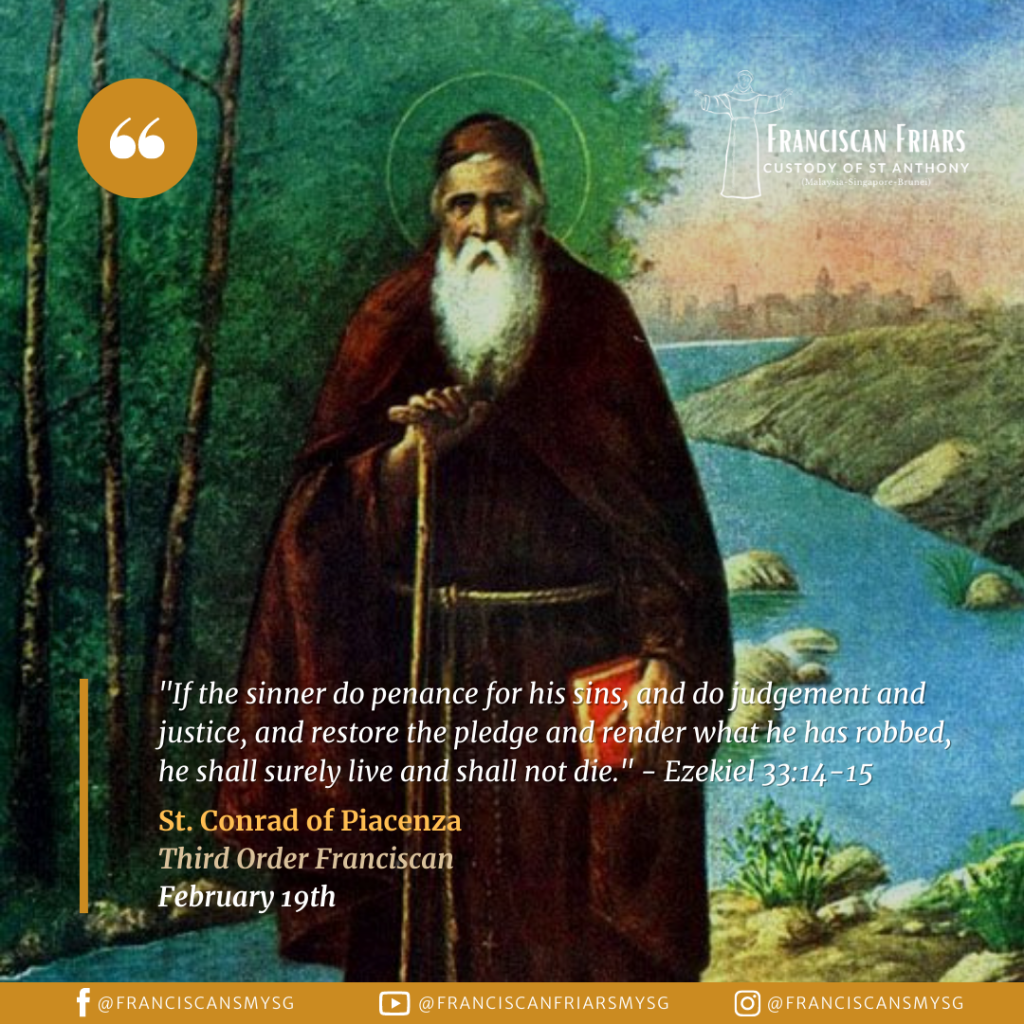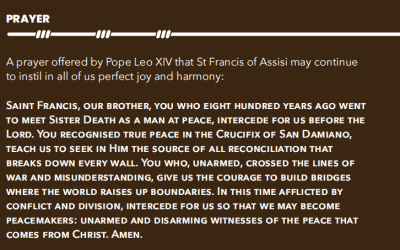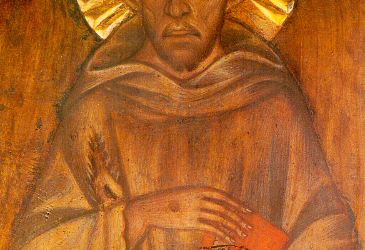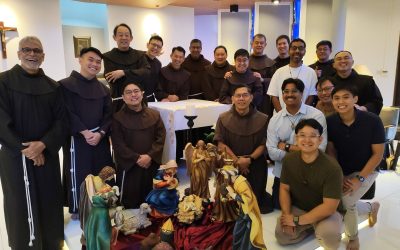
St. Conrad, a young nobleman from Piacenza, was out hunting one day when, in order to drive out his game, he ordered his servants to set fire to the surrounding brush-wood. Following a sudden turn in the wind, Conrad watched in horror as the fire consumed the neighboring fields. After returning quietly to town, he said nothing about his part in this disaster. But when a peasant was subsequently charged with the crime and sentenced to death, Conrad was filled with remorse. Stepping forward, he accepted the blame and paid for all the damages, though this left him nearly ruined. In this misfortune, however, Conrad saw the hand of God. Subsequently, he and his wife decided to give up all their property and pursue religious life. While his wife entered a convent of Poor Clares, Conrad entered the Third Order of St. Francis, joining a group of hermits in the Valley of Noto.
Contrary to his intentions, Conrad’s sacrifice caused him to be widely admired. To escape the throng of visitors, he retired to a remote grotto. But when his prayers were credited with ending a famine, he felt he had no choice but to welcome the stream of suffering pilgrims who came seeking his intervention. Many other miracles were credited to Conrad, and birds were reported to flutter over his head whenever he exited his hermitage. Discerning that his final hour had arrived, he lay on the ground in front of the crucifix and died on February 19, 1351. He was canonized in 1625.
Source : The Franciscan Saints (Franciscan Media)





0 Comments